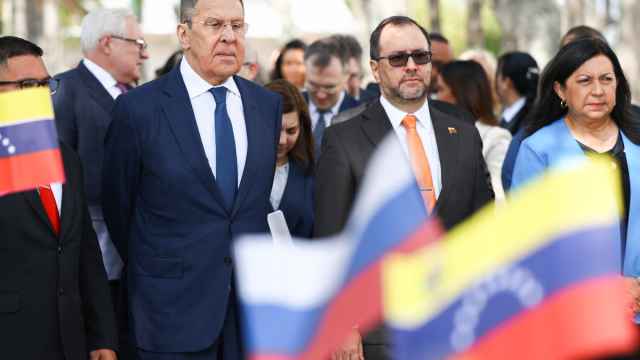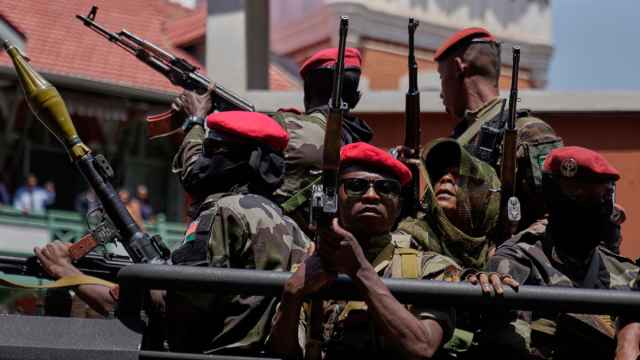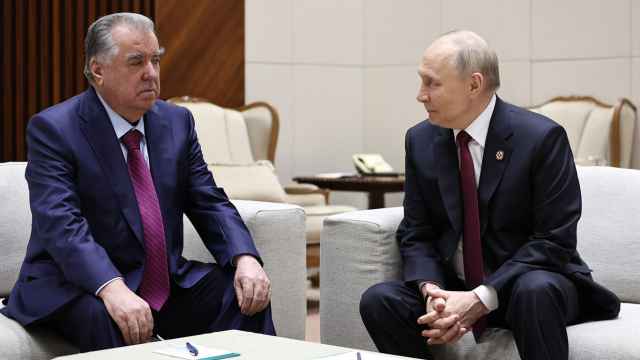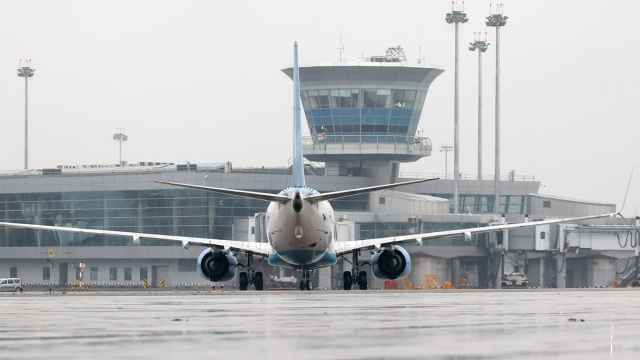ST. PETERSBURG — Days after Russia's historic signing of a 30-year, $400 billion gas supply deal with China, European importers conceded that the Asia-Pacific region may be supplanting them as Russia's most important gas market.
Alexei Miller, head of Russia's state-owned energy giant Gazprom, which struck the deal with China, told Western energy industry leaders gathered at the St. Petersburg International Economic Forum that their regions were falling out of favor on the global gas market.
The latest supply deal with China means that "competition for Russia's gas resources has begun," Miller said, and that European gas prices may be affected in its aftermath.
"Gazprom delivers two thirds of Europe's gas supplies, and our role [on the European market] will only intensify," Miller said. "But Europe and North America are losing to the Asia-Pacific region."
Miller, who also said that the 21st century would be "the century of gas," noted the continuing decline of Europe's own gas production in the Netherlands, Britain, Germany and Norway, and said that the EU was not maximizing the potential of its liquified natural gas terminals.
European gas importers echoed Miller's assessment, deploring the state of the European gas market.
Leonhard Birnbaum, a member of the management board at Germany's E.ON, one of the world's largest investor-owned electric utility service providers, said gas faces increasing competition from other energy sources in Europe, both in commercial production and residential heating.
"The golden age of gas is materializing everywhere, but we do not see it in Europe," Birnbaum said. "We are witnessing constant decline in demand in Europe's six largest gas markets."
Birnbaum attributed this decline, in part, to consumers' uncertainty regarding Russia's reliability as an energy supplier.
"Gas is not winning in Europe," he said. "It is too expensive and does not relate to the realities of customers. All uncertainty about supply needs to go away."
Gazprom, ironically, is one of the sources of this uncertainty. In the winters of 2006 and 2009, EU countries suffered gas shortages during a dispute between Russia and Ukraine that saw Russia unilaterally turn off the flow. Russia has now again fallen out with Ukraine, and the two countries are in a running dispute over gas prices that has seen Russia repeatedly threaten to cut supplies.
Alexander Novak, Russia's Energy Minister, implied that European apprehensions were unjustified. He assured that Russia "would remain a reliable energy supplier to Europe."
A Message from The Moscow Times:
Dear readers,
We are facing unprecedented challenges. Russia's Prosecutor General's Office has designated The Moscow Times as an "undesirable" organization, criminalizing our work and putting our staff at risk of prosecution. This follows our earlier unjust labeling as a "foreign agent."
These actions are direct attempts to silence independent journalism in Russia. The authorities claim our work "discredits the decisions of the Russian leadership." We see things differently: we strive to provide accurate, unbiased reporting on Russia.
We, the journalists of The Moscow Times, refuse to be silenced. But to continue our work, we need your help.
Your support, no matter how small, makes a world of difference. If you can, please support us monthly starting from just $2. It's quick to set up, and every contribution makes a significant impact.
By supporting The Moscow Times, you're defending open, independent journalism in the face of repression. Thank you for standing with us.
Remind me later.





